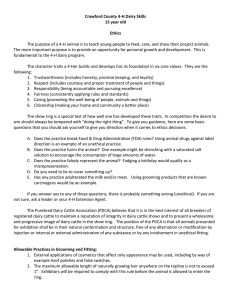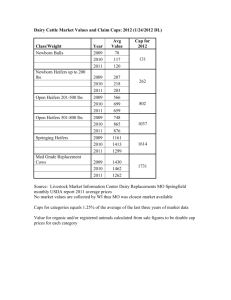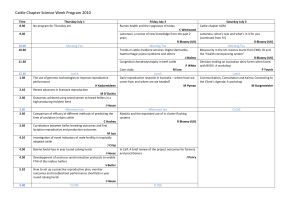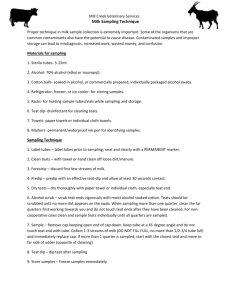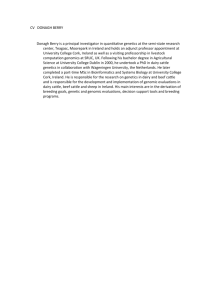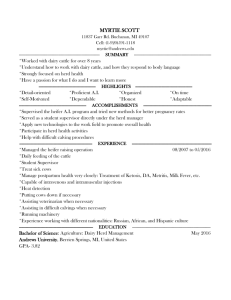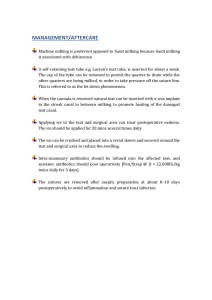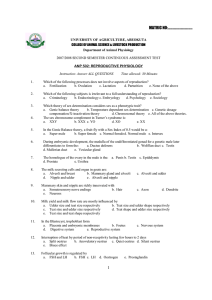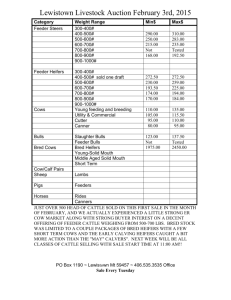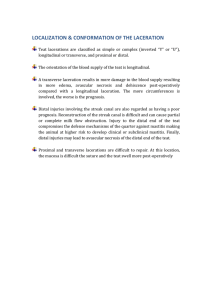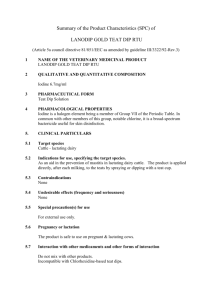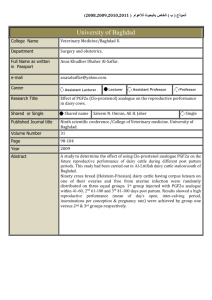Serving the dairy industry by providing
advertisement
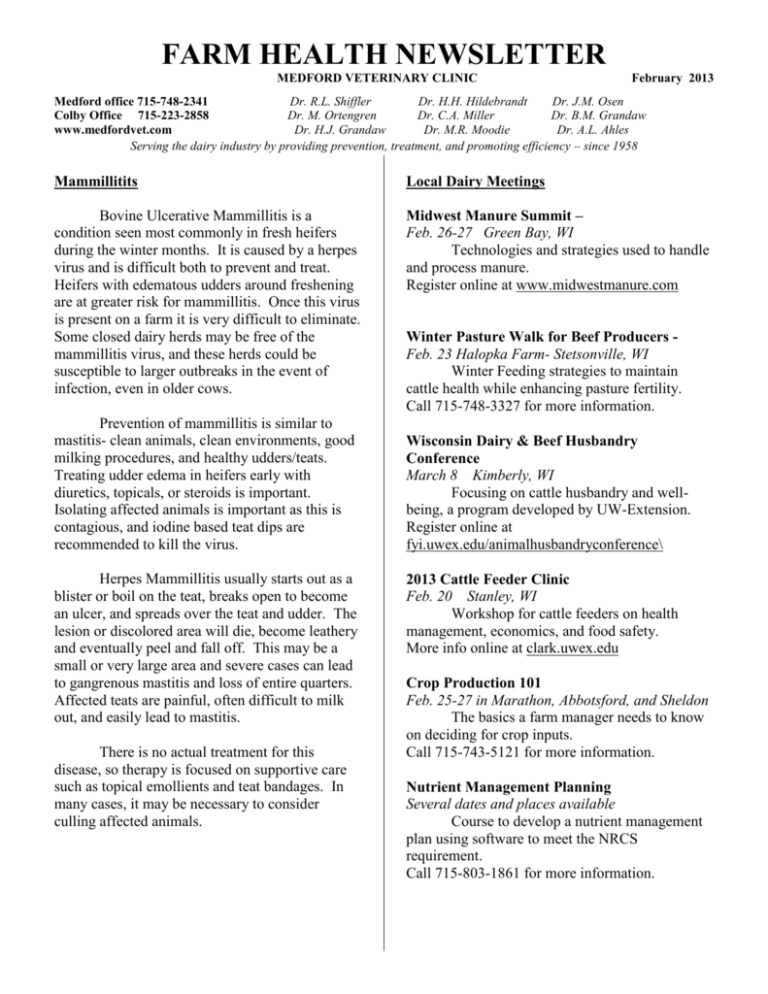
FARM HEALTH NEWSLETTER MEDFORD VETERINARY CLINIC February 2013 Medford office 715-748-2341 Dr. R.L. Shiffler Dr. H.H. Hildebrandt Dr. J.M. Osen Colby Office 715-223-2858 Dr. M. Ortengren Dr. C.A. Miller Dr. B.M. Grandaw www.medfordvet.com Dr. H.J. Grandaw Dr. M.R. Moodie Dr. A.L. Ahles Serving the dairy industry by providing prevention, treatment, and promoting efficiency – since 1958 Mammillitits Local Dairy Meetings Bovine Ulcerative Mammillitis is a condition seen most commonly in fresh heifers during the winter months. It is caused by a herpes virus and is difficult both to prevent and treat. Heifers with edematous udders around freshening are at greater risk for mammillitis. Once this virus is present on a farm it is very difficult to eliminate. Some closed dairy herds may be free of the mammillitis virus, and these herds could be susceptible to larger outbreaks in the event of infection, even in older cows. Midwest Manure Summit – Feb. 26-27 Green Bay, WI Technologies and strategies used to handle and process manure. Register online at www.midwestmanure.com Prevention of mammillitis is similar to mastitis- clean animals, clean environments, good milking procedures, and healthy udders/teats. Treating udder edema in heifers early with diuretics, topicals, or steroids is important. Isolating affected animals is important as this is contagious, and iodine based teat dips are recommended to kill the virus. Herpes Mammillitis usually starts out as a blister or boil on the teat, breaks open to become an ulcer, and spreads over the teat and udder. The lesion or discolored area will die, become leathery and eventually peel and fall off. This may be a small or very large area and severe cases can lead to gangrenous mastitis and loss of entire quarters. Affected teats are painful, often difficult to milk out, and easily lead to mastitis. There is no actual treatment for this disease, so therapy is focused on supportive care such as topical emollients and teat bandages. In many cases, it may be necessary to consider culling affected animals. Winter Pasture Walk for Beef Producers Feb. 23 Halopka Farm- Stetsonville, WI Winter Feeding strategies to maintain cattle health while enhancing pasture fertility. Call 715-748-3327 for more information. Wisconsin Dairy & Beef Husbandry Conference March 8 Kimberly, WI Focusing on cattle husbandry and wellbeing, a program developed by UW-Extension. Register online at fyi.uwex.edu/animalhusbandryconference\ 2013 Cattle Feeder Clinic Feb. 20 Stanley, WI Workshop for cattle feeders on health management, economics, and food safety. More info online at clark.uwex.edu Crop Production 101 Feb. 25-27 in Marathon, Abbotsford, and Sheldon The basics a farm manager needs to know on deciding for crop inputs. Call 715-743-5121 for more information. Nutrient Management Planning Several dates and places available Course to develop a nutrient management plan using software to meet the NRCS requirement. Call 715-803-1861 for more information.
